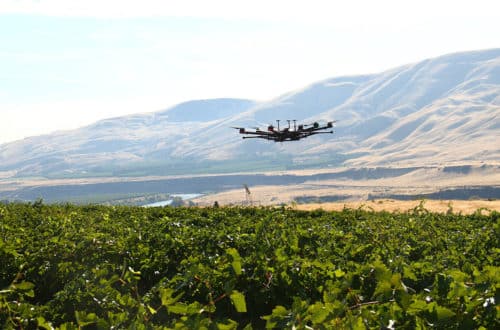In the future, cameras could detect blackbirds munching on grapes in a vineyard and send out drones to chase them away, then return to keep an eye out for the next flock of intruders! A research team from Washington State University has created just such a system.

The system is intended to have automated drones patrolling 24 hours a day to dissuade problem birds such as European starlings and crows, which cost growers millions of dollars in stolen or destroyed fruit each year. “Growers don’t really have a good tool they can rely on for deterring pest birds at an affordable price,” said Manoj Karkee, Associate Professor in WSU’s Department of Biological Systems Engineering and the study’s corresponding author. “With further refinement and industry partnerships, this system could work.”
The researchers conducted two independent tests for the study: identifying birds and automatically deploying drones. Karkee’s team spent several years developing a camera system and algorithm that could detect and count birds as they flew in and out of fields. The researchers created very small drones and tested them on small plots with simulated birds.
The system is similar to drone package delivery systems in terms of technology. Because there are still several hurdles to overcome, including ensuring that the technology works at scale, complies with federal drone regulations, and continues to deter birds even when drones are commonly flying around, it will be several years before this technology is commercially available for growers.
“We could make drones look like predators, or have reflective propellers that are really shiny,” he said. “All of these working together would likely keep birds away from those vineyards and fields. We need to research that over multiple years to make sure.”
The drone automation study is the third in a series of three on drones and bird pests. The first experiment demonstrated that manually operated drones flying at random successfully drove birds away from vineyards. Drones were found to have a four-fold reduction in bird numbers. The second project demonstrated the impact of bird control on agricultural productivity. Karkee’s team returned to the areas where they had manually chased the birds away. Damaged fruits were reduced by around half in those crops.








